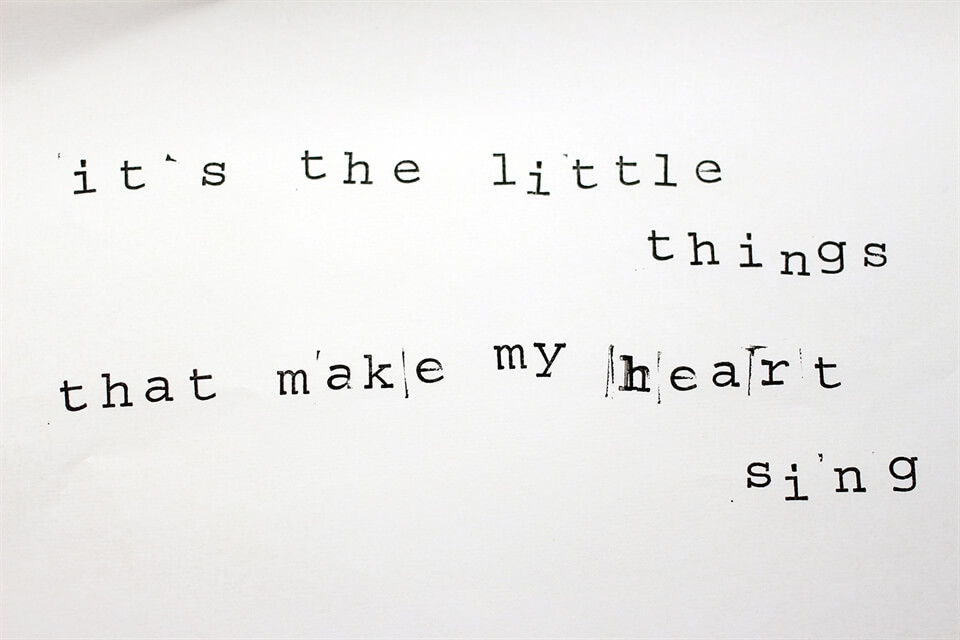NaNoWriMo Inspiration (Day 11): Tell us all about it... all the little heartbreaking details.

If you're ready to write, don't stop to read this. Write. Get those words out of you and put them in a better place.
If you're stuck, feeling lost and don't know where to start, or where to pick up the thread again then read on. Today's portion of NaNoWriMo Inspiration should thaw even the most stubborn of writer's block.
Today I want you to read this and then come back to me here. It's a letter from the author of One Flew Over the Cuckoo's Nest, Ken Kesey, to five close friends and in it he describes the funeral of his son who died in a car accident aged 20. Go on, please read it.
*****
Welcome back. How do you feel? Sad? Upset? A little altered by what they all went through?
Yes, I felt all those things to, and then some.
A little worryingly, one of my many reactions was; I have to share this with my NaNoWriMo Inspiration readers.
This is a little disturbing in many ways. I mean, who reads such tender, tragic words and then wants to use it to fuel a creative endeavour?
Well, I apologise if you think it's a little distasteful, but hear me out for in that letter there is the kind of magic that novels are made of.
There is gut-wrenching honesty about the ins and the outs of a collection of devastating days. It is an honesty he didn't have to share. It must have been traumatic to do so, although he admits he felt the need to. But even this honesty is doused in a small but still potentially ill-tasting attempt at humour: : "Partners, it's been a bitch." Because that's what some of us do. We try to make the most awful of scenarios a little lighter on those we share it with.
There are a number of astonishingly simple yet clever turns of phrase. I think this one is my favourite: "It was a double-pretty day, like winter holding its breath, giving us a break." I love how there's nothing elaborate or complex in that sentence. The words are those a child would say. This is proof you don't need to use fancy words or multi-tiered sentence structure to have impact.
There are the little details. The minute snapshots of memory our brain collects; "Faye put in a snapshot of her and I standing with a pitchfork all Grantwoodesque in front of the old bus. Paul Foster put in the little leatherbound New Testament given him by his father who had carried it during his 65 years as a minister. Paul Sawyer read from Leaves of Grass while the boys each hammered in the one nail they had remembered to put in their pockets." Again the words are simple and the stories are unrelated but they add so much.
There is reflection, an attempt to make some sense of it all when really none of it makes sense. There is a need to carve some good our of the ugliest stone, which I believe is a desire every human is capable of. "Then the doctor asked a strange thing. He wanted to know what kind of kid Jed was. Zane and I both demanded what he meant. He said he was wondering how Jed would have felt about being an organ donor. Our hearts both jumped."
"Our hearts both jumped." If that isn't the finest example of "showing" and not "telling" I don't know what is.
Of course, Ken Kesey wasn't thinking about any of the above when he wrote this letter to his friends. He just wanted to share his heavy, heavy horrid burden. I know some people will be working on a story that is born from a burden or sadness of your own.
If this is you, I hope you found this letter useful, no matter how sad. Take courage in how effective, how precious and how beautiful it is to remember the little details, to try and reflect and learn, and to lace it all with the occasional attempt at humour.
And for us all, no matter what we're writing and why we're writing it, I hope Ken Kesey's letter encourages you to write it all down. Tell us all about it. Whatever it is. Get it out of you and into the world, where we can share in it with you.
Write it how it goes in your head. What happened first, second and third. And then what happened after that?
And if you have brainspace to think about something else as you write today. Think about the little details. Those little details are often what make a piece of writing come alive. Those little details are what readers remember in the same way someone who lives them remembers them.
All those little, heart-breaking details are what could make your story.
Bookmark this page for NaNoWriMo Daily Inspiration Posts, every day in November 2014.

Frances M. Thompson
Londoner turned wanderer, Frankie is an author, freelance writer and blogger. Currently based in Amsterdam, Frankie was nomadic for two years before starting a family with her Australian partner. Frankie is the author of three short story collections, and is a freelance writer for travel and creative brands. In 2017, she launched WriteNOW Cards, affirmation cards for writers that help build a productive and positive writing practice. When not writing contemporary fiction, Frankie shops for vintage clothes, dances to 70s disco music and chases her two young sons around Amsterdam.
Find Frankie on Facebook, Twitter, Instagram, Pinterest, and Google+.
Find Frankie on Facebook, Twitter, Instagram, Pinterest, and Google+.
 Preptober Tips & 100 Preptober Prompts for NaNoWriMo Prep
Preptober Tips & 100 Preptober Prompts for NaNoWriMo Prep On Writing: The Only NaNoWriMo Tips You'll Ever Need
On Writing: The Only NaNoWriMo Tips You'll Ever Need On Writing: Ten Tips for NaNoWriMo
On Writing: Ten Tips for NaNoWriMo NaNoWriMo Inspiration (Day 30): Someday Soon All This Will Be Someone Else's Dream
NaNoWriMo Inspiration (Day 30): Someday Soon All This Will Be Someone Else's Dream NaNoWriMo Inspiration (Day 29): Ten Songs That Are Actually Novels in Disguise
NaNoWriMo Inspiration (Day 29): Ten Songs That Are Actually Novels in Disguise About the Blog & Frankie
About the Blog & Frankie Welcome to My Amsterdam Travel Blog!
Welcome to My Amsterdam Travel Blog! Welcome to My Luxury Family Travel Blog!
Welcome to My Luxury Family Travel Blog! Welcome to My Writing Blog!
Welcome to My Writing Blog! Lover Mother Other: Poems - Out Now!
Lover Mother Other: Poems - Out Now! I Write Stories That Move You
I Write Stories That Move You Order WriteNOW Cards - Affirmation Cards for Writers
Order WriteNOW Cards - Affirmation Cards for Writers Work With Me
Work With Me